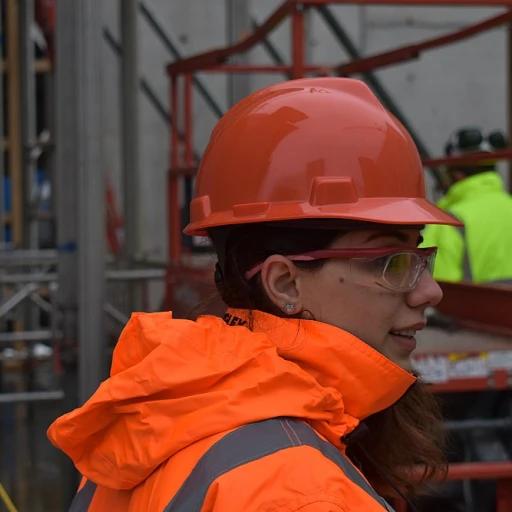
Understanding the South Carolina Notary Application
Deciphering the Application Process
Applying to become a notary public in South Carolina can seem daunting at first, but understanding the steps involved will help streamline the experience. To start, applicants must demonstrate they meet the eligibility requirements, which include being a resident of the state and at least 18 years old. You'll also need to complete a notary public examination to ensure competence in carrying out notarial acts. Once you're ready to begin the application process, you need to gather the necessary documents. These typically include a voter registration card or another valid identification issued by a governmental office such as a local recruitment office. Pay special attention to all requirements surrounding the notarial seal, as this is crucial for notarization. For many, the role of the South Carolina Secretary of State is integral to navigating the application. The secretary's office oversees notary public applications, ensuring that South Carolina's notarial laws and best practices are upheld. Prospective notaries will be involved with several processes, including electronic notarization and managing notary commissions. Understanding these components can aid in a smooth transition to becoming an effective notary public. While traditional notarial acts remain vital, South Carolina has embraced electronic notarization, allowing notaries to perform their duties online. This modern approach necessitates familiarity with electronic journals and signatures, ensuring compliance with state code laws. For those interested in electronic notarial services, the state offers resources to help them achieve seamless electronic notarial processes, becoming a pivotal part of the application procedure. Finally, aligning with the legal prerequisites and maintaining communication with the county delegation office will enhance the likelihood of a successful notary application, affirming your readiness to serve the public diligently. For those interested in how adverse media results might impact the process, consider exploring more about them here. These insights can enhance your grasp of the application landscape, integrating thorough background checks seamlessly into your journey to becoming a commissioned notary.The Role of Background Checks in Notary Applications
The Importance of Background Checks in Notary Applications
In South Carolina, the process of becoming a notary public involves several critical steps, one of which is undergoing a background check. This is a crucial part of the notary application process, ensuring that individuals entrusted with notarial acts are of sound character and integrity. The state of South Carolina, like many others, mandates this to maintain public trust and uphold the standards of the notarial profession.
Background checks serve as a safeguard, verifying that applicants do not have a history that could compromise their duties. This includes checking for criminal records, which could potentially disqualify an applicant from receiving a notary commission. The impact of South Carolina's Bill 3537 has further emphasized the role of these checks, enhancing the scrutiny applied to applicants.
As the notary public's role evolves with the advent of electronic notarization, the need for thorough background checks becomes even more pronounced. Electronic notarial acts, which are becoming more common, require notaries to handle sensitive information securely. Therefore, ensuring that a notary has a clean background is essential for protecting both the public and the integrity of the notarial process.
Moreover, the secretary of state’s office in South Carolina plays a pivotal role in overseeing these checks. They ensure that all applicants meet the necessary criteria before granting a notary commission. This process not only involves checking criminal records but also verifying voter registration and other relevant documentation.
In summary, background checks are a fundamental component of the notary application process in South Carolina. They help maintain the integrity of the notarial profession and ensure that only qualified individuals are entrusted with the responsibilities of a notary public.
Current Trends in Background Checks
Evolution in Background Check Processes
The landscape of background checks has evolved significantly, particularly in the context of the South Carolina notary application process. As advancements in technology shape the ways in which notaries public operate, there is a noticeable shift toward more sophisticated and electronic methods of conducting background verifications.
In the past, background checks might have been a straightforward procedural requirement. Today, with the rise of electronic notarization and the increased reliance on online services, background checks have become more comprehensive. They no longer just validate a notary applicant's criminal history or identity; they also assess their capacity to function effectively as an electronic notary within the state south jurisdiction.
Several trends are shaping this process:
- Data Integration: Background checks now involve the integration of multiple data sources, such as voter registration, public records, and other databases, to provide a holistic view of the applicant's history.
- Increased Security Measures: There is a heightened emphasis on maintaining the security of personal information throughout the application process. This is especially crucial as the use of electronic notarial acts increases.
- Digital Accessibility: Applications can often be submitted online, allowing for quicker processing and verification by the secretary of state and other relevant authorities within the county.
These trends not only influence the way background checks are conducted but also highlight the importance of effective methods for validating supplier company information, as outlined in related blog content. Understanding these evolving trends is essential for applicants to navigate the notary south carolina application process effectively.
Challenges Faced by Applicants
Overcoming Hurdles in the Application Journey
For many aspiring notaries, the process of obtaining a notary commission in South Carolina presents a few challenges. Navigating the notary application and meeting the specific requirements as laid out by the South Carolina Secretary of State can feel like a daunting task. However, understanding the groundwork and being prepared can take much of the guesswork out of the equation.
One significant hurdle is ensuring all required documents are in order. This may include a valid voter registration certificate, as the state requires proof of residency. Similarly, the notary public must be prepared to undergo a thorough review of their notarial acts background to ensure eligibility for a notary public role. The South Carolina State Code Laws necessitate that all applicants have a clear understanding of notarial duties, including the proper use of a notary seal and the execution of electronic notarial acts.
Moreover, applicants must stay abreast of any updates or changes in the notary application process or the county-specific notarization fees. This knowledge will prevent any delays in receiving their commission, as misunderstanding state-specified requirements could hinder progress.
The transition to electronic notarization and becoming an electronic notary is another challenge, particularly for those who prefer traditional methods. Carolina electronic notarial acts require notaries public to adapt to digital platforms. An electronic journal becomes an essential tool, and many may find it a steep learning curve to switch from physical records.
Applicants can also face delays due to the time required for background checks and the subsequent approval from the county delegation office. Thus, early preparation and thorough understanding of the notary south process can smooth out complications before they arise.
Tips for a Smooth Application Process
Practical Steps for a Successful Notary Application
Embarking on the journey to become a notary public in South Carolina can seem daunting, but with a thorough understanding of the application process, you can navigate through it more smoothly. Here are some key tips to help applicants ensure a hassle-free experience.
- Gather Necessary Documents Ahead of Time: Collect essential documents such as proof of your identity, South Carolina voter registration, and any previously held commissions. Being organized will help in streamlining the application process.
- Familiarize Yourself with the Requirements: Each state, including South Carolina, imposes specific mandates for notary applications. Review the South Carolina code laws and the requirements set by the Secretary of State. This knowledge is crucial to avoid any missteps.
- Understand the Importance of Background Checks: Given their significance in the notary application process, make sure you have no unresolved issues, such as court cases or outstanding warrants, as these could delay your application.
- Complete the Application Form Accurately: Any errors on the application form can lead to unnecessary delays. Double-check information related to your personal details, registration, and commissioning body to ensure accuracy.
- Online Applications: If possible, opt for online submission to the Secretary of State’s office. This not only saves time but also ensures a smoother processing of your notary application.
- Prepare for Notarial Practice: Familiarize yourself with procedural practices such as the proper use of a notary seal and record maintenance through an electronic journal.
- Continuous Learning: Keep abreast of updates such as electronic notarization and notarial acts within the state, which may impact your future role as a notary public in South Carolina.
- Follow Up: After submission, stay in touch with your county delegation office or the Secretary of State to track the progress of your notary commission application.
Following these guidelines will not only aid in efficiently obtaining your notary commission but will also help you be well-prepared for your responsibilities as a South Carolina notary public.













